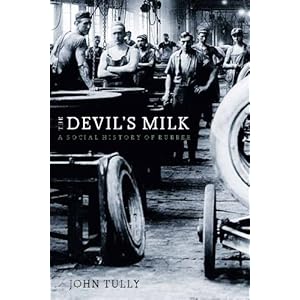capitalism
Climate finance leadership risks global bankruptcy

By Patrick Bond
April 24, 2011 -- Links International Journal of Socialist Renewal -- South Africa’s most vocal neoliberal politician, Trevor Manuel (pictured above), has just been named as co-chair of the Green Climate Fund. On April 28-29, 2011, in Mexico City, Manuel and other elites met to design the world’s biggest-ever replenishing pool of aid money: a promised US$100 billion of annual grants by 2020, more than the International Monetary Fund (IMF), World Bank and allied regional banks put together.
The Climate Justice lobby is furious because, as the network of 90 progressive organisations wrote to the United Nations, “The integrity and potential of a truly just and effective climate fund has already been compromised by the 2010 Cancún decisions to involve the World Bank as interim trustee.” A Friends of the Earth International study earlier this month attacked the World Bank for increased coal financing, especially $3.75 billion loaned to South Africa’s Eskom a year ago.
Reading 'The Shock Doctrine' in Cairo

[The following article was provided by Cairo-based Australian journalist Austin Mackell and first appe
Nuclear means catastrophe: The lesson of Fukushima

People are tested for radiation exposure near Fukushima.
By Daniel Tanuro
March 17, 2011 -- International Viewpoint via Climate and Capitalism -- What has happened was entirely predictable: yet another major nuclear “accident”. At the time of writing, it is not yet certain that it will take on the dimensions of a disaster similar to Chernobyl, but that is the direction in which things, alas, look set to evolve. But whether it develops into a major disaster or not, we are once again faced with evidence that nuclear technology can never be 100% secure.
`Coolie revolts': exclusive excerpt from 'The Devil's Milk: A social history of rubber'

The Devil’s Milk: A social history of rubber
By John Tully
Monthly Review Press, 2011
March 13, 2011 -- With the kind permission of Monthly Review Press, Links International Journal of Socialist Renewal is honoured to be able to bring its readers an exclusive excerpt from Australian socialist John Tully's fascinating new book, The Devil’s Milk: A social history of rubber. The section below details how the peoples of the colonies exploited by the imperialist rubber barons fought back against their oppression. Links readers are urged to purchase a copy of this excellent new book. See also an interview with John Tully about his new book, "New book reveals the history of rubber: holocausts, environmental destruction and class struggle".
Levantamiento de Egipto: no sólo una cuestión de 'transición'

Tahrir Square. Foto by Hossam el-Hamalawy.
[English version at http://links.org.au/node/2164.]
Por Adam Hanieh, traducido para el CEPRID por María Valdés
New book reveals the history of rubber: holocausts, environmental destruction and class struggle

The Devil’s Milk: A social history of rubber
By John Tully
Monthly Review Press, 2011
[Order the The Devil’s Milk from Monthly Review Press HERE. John Tully launched the book in Melbourne on February 17, at Readings Books, Carlton (309 Lygon St). He will also launch it in New York City on February 22, 7.30pm, at The Brecht Forum, 451 West Street.]
February 18, 2011 – Links International Journal of Socialist Renewal -- This new book from Monthly Review Press – by Australian socialist John Tully -- documents the history of rubber and the role it has played in the development of capitalism.
Rubber is an essential industrial material, although underappreciated by most of us, even though we are surrounded by it. Since its industrial uses began to be fully appreciated in the 1800s, the quest for rubber has been, in Tully’s words, “a paradigm of imperialism”.
Egypt’s uprising: Not just a question of ‘transition’

Anti-Mubarak graffitti on a tank.Tahrir Square.
Martin Hart-Landsberg: China and the jobs issue

"Approximately 90 per cent of China’s high technology exports to the US are produced by multinational corporations and many of them are being bought an
The futility of green capitalism: Interview with Daniel Tanuro
January 17, 2011 -- Climate & Capitalism -- Daniel Tanuro’s new book, L’impossible capitalisme vert,or “The Futility of Green Capitalism”, is a major contribution to our analytical understanding of ecosocialism. Tanuro, a Belgian Marxist and certified agriculturist, is a prolific author on environmental history and policies.
Addressed primarily to the Green milieu, as the title indicates, this book is a powerful refutation of the major proposals advanced to resolve the climate crisis that fail to challenge the profit drive and accumulation dynamic of capital. Much of the book appears to be a substantially expanded update of a report by Tanuro adopted in 2009 by the leadership of the Fourth International as a basis for international discussion. That report was translated by Ian Angus and included in his anthology The Global Fight for Climate Justice.

By Alistair Davidson
Capitalism and degrowth: An impossibility theorem

By John Bellamy Foster
January 2011 -- Monthly Review -- In the opening paragraph to his 2009 book, Storms of My Grandchildren, James Hansen, the world’s foremost scientific authority on global warming, declared: “Planet Earth, creation, the world in which civilization developed, the world with climate patterns that we know and stable shorelines, is in imminent peril…The startling conclusion is that continued exploitation of all fossil fuels on Earth threatens not only the other millions of species on the planet but also the survival of humanity itself—and the timetable is shorter than we thought.”1
Why does health care in Cuba cost 96% less than in the US?

Claudia Lopez, an intern, with outpatients at 5 de Septiembre Polyclinic, Havana.